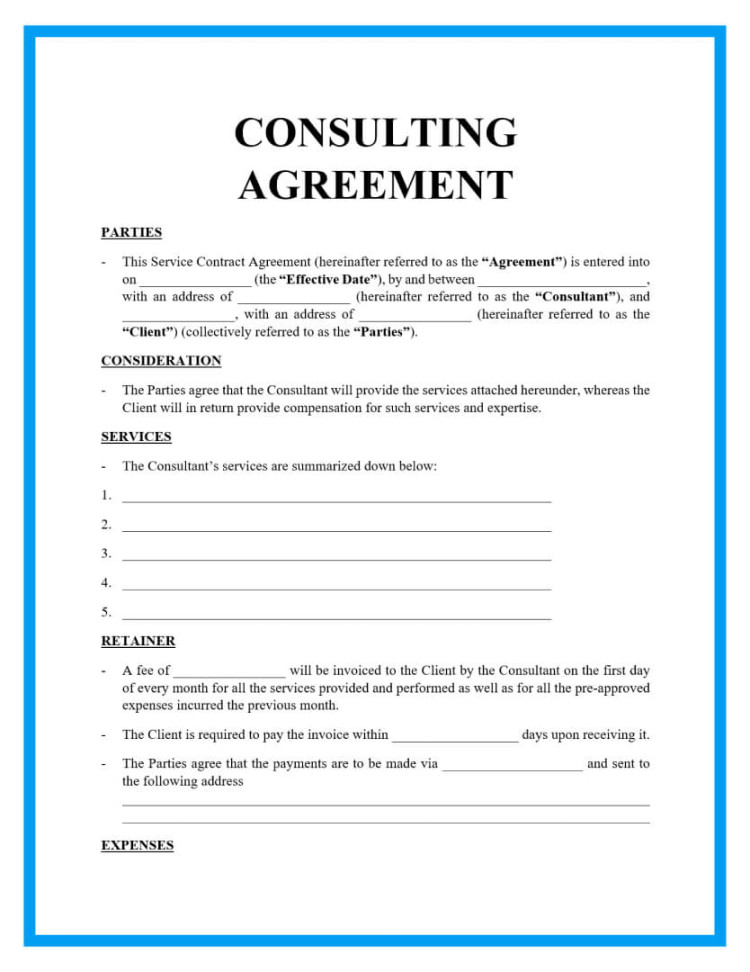Defining the Freelance Consulting Agreement
A freelance consulting agreement is a legally binding document that outlines the terms and conditions of a professional relationship between a freelance consultant and a client. This agreement serves as a safeguard for both parties, ensuring clarity, accountability, and protection of intellectual property rights.

Key Components of a Freelance Consulting Agreement
1. Parties Involved: Clearly identify the names and contact information of both the freelance consultant and the client.
2. Project Scope: Provide a detailed description of the project, including its objectives, deliverables, and timelines.
3. Compensation and Payment Terms: Specify the compensation structure (hourly rate, fixed fee, or project-based), payment terms, and any applicable taxes or fees.
4. Intellectual Property Rights: Clearly define ownership of intellectual property created during the consulting engagement.
5. Confidentiality: Establish obligations for both parties to maintain confidentiality of any sensitive information disclosed during the project.
6. Term and Termination: Outline the duration of the agreement and the conditions under which either party can terminate the relationship.
7. Dispute Resolution: Specify the method for resolving any disputes that may arise.
8. Governing Law: Indicate the jurisdiction that will govern the agreement.
9. Entire Agreement: State that the agreement constitutes the entire understanding between the parties and supersedes any prior or contemporaneous communications.
10. Signatures: Ensure that both parties sign the agreement to make it legally binding.
Design Elements for Professionalism and Trust
1. Clean and Consistent Layout: Use a clean and uncluttered layout with consistent fonts, spacing, and headings.
2. Professional Typography: Choose a font that is easy to read and conveys professionalism. Avoid using overly decorative or difficult-to-read fonts.
3. Clear and Concise Language: Use clear and concise language that is easy to understand. Avoid legal jargon that may confuse the parties.
4. Headings and Subheadings: Use headings and subheadings to organize the agreement and make it easier to navigate.
5. White Space: Use white space effectively to create a visually appealing and easy-to-read document.
6. Professional Branding: If applicable, incorporate your professional branding elements, such as your logo and color scheme, into the agreement.
Crafting a Persuasive and Engaging Agreement
1. Tailor the Agreement to Your Specific Needs: Customize the agreement to fit the unique requirements of your consulting engagement.
2. Use Strong and Clear Language: Use strong and clear language to convey your professionalism and expertise.
3. Be Fair and Reasonable: Ensure that the terms of the agreement are fair and reasonable for both parties.
4. Address Potential Concerns: Anticipate and address potential concerns that may arise during the consulting engagement.
5. Obtain Legal Review: Consider consulting with an attorney to ensure that the agreement is legally sound and protects your interests.
Conclusion
A well-crafted freelance consulting agreement is essential for establishing a successful and professional relationship between a consultant and a client. By following the guidelines outlined in this guide, you can create a comprehensive and legally sound agreement that protects your rights and interests.